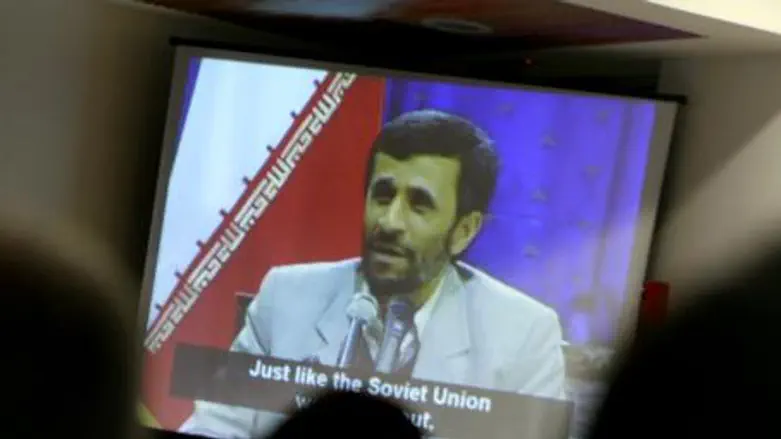
Iran’s oil exports plummeted 24 percent over the 12-month period ending last February and energy revenues dropped by $19 billion, according to reports published by the semi-official Fars News Agency.
Oil production also has dropped, primarily due to the international sanctions that make it harder for other countries to invest in the Islamic Republic’s gas and oil industry. The Financial Times reported in May that oil production dropped by 300,000 barrels a day.
The drop in revenues comes at the same time that Iranian President Mahmoud Ahmadinejad as continues his spending spree for more nuclear sites and advanced weapons, leaving his regime with little money to compensate for the loss of investments in local energy projects.
Despite the government’s public scoffing that sanctions are useless, government officials privately told the London Guardian, "The president doesn't like to hear bad news. It appears the people around him don't tell him when there's something wrong. But there are others raising alarms about the economy. The government isn't panicking yet, but it should be."
Iran suffers from triple trouble: limited refining capacity for domestic demand of oil, cancellations of oil contracts from Far Eastern countries seeking lower prices elsewhere, and the United Nations Security Council’s sanctions that are cutting into foreign investments to expand refining facilities.
Iran’s ability to refine crude oil already had been severely crippled before the sanctions: it never fully recovered from the effects of the eight-year war with Iraq in the 1980s. Growing domestic demand for refined oil also has limited the amount of crude oil it can export.
With the second-largest reserves in the world, Iran depends on oil exports for approximately 80 percent of its revenue.
Iran is dependent on foreign buyers to refine heavy grade oil that its infrastructure cannot handle, and the sanctions are making it more difficult to find investors to increase its domestic refining capacity. Meanwhile, the growing domestic demand requires Iran to import up to 40 percent of needed refined oil.
Iran has to use its refining facilities to produce the more expensive light-grade oil that is sold cheaply on local markets because of subsidized prices. At the same time, heavier crude, which is in less demand internationally, fetches lower prices, which causes a no win situation.